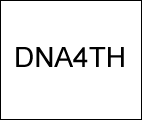Once you are in the system, you will find the announcements, forums and assignments in the central section of the page. That is where all of the materials and information reside. I have included a short Power Point presentation on how to use Moodle, the classroom system, but it won't take long for you to feel comfortable in it. You participate at your own time of the day throughout the week. However, it is important that you introduce yourself and get involved early in the week so that we can have a dialog going. Online discussion is the heart of online learning. Once you experience it, you will love it.
I am holding a conference on Monday evening at 6 PM for anyone who wants to join me. We will join through our computers and by phone, using Go to Meeting software. I will take you through the system and answer any questions you may have. There is no charge to any AEFL-funded program.
Conference Instructions for those who want to meet on Monday evening:
-
Please join the meeting at https://www1.gotomeeting.com/join/482843764
Meeting ID: 482-843-764 -
Once you are online, Call: (605) 772-3210, access code 482-843-76
The schedules, instructions, and registration forms for Learning Segments are at http://www.coloradoadulted.org/LES/LESResources.htm.
Video Help
http://www.expertvillage.com/ - How-to videos. You won't believe the number of videos that go through the process of doing all kinds of things. I didn't see a single inappropriate topic. Instead, I had lots of fun viewing topics of interest. Value to your students? Your imagination is the limit. The videos load quickly because they use streaming. Among students, I would download first and then show. There are several categories from which to choose, from Automotive to Parenting, Pets to Home and Garden, and more. As an instructor, I would go in first and review what I want students to see. These make great class presentations as prompts for discussion and writing, along with content for using academic skills in numerous ways. Enjoy.
http://www.mathplayground.com/mathtv.html - Math Playground: Problem solving videos. I watched several of these videos. They are produced on a whiteboard with narrative background. I found them simple, clear, and to the point. Some of the language around the site may appeal to younger learners, but the content is great. Each video presents a problem, which is then solved, step by step for the student. Then the student is invited to solve a similar problem online, with hints along the way.
http://faculty.uaeu.ac.ae/paul.kelly/projs/wtg/WritingHome.html - For teachers. Intriguing concepts in teaching writing to pre intermediate students taking English for Academic Purposes writing courses.
http://www.webmath.com/ - Not a video, but this is an interactive problem-solving site, with numerous resources. It doesn't teach how to solve the problem, but it lets you input information that is solved online.
Questions from the Field

Waiting
for your to ask!
- I would like resources to teach comparative terms (two ideas) and prepositions of place in English.
I'm so glad a few of you have asked for these resources! I looked for good sites online to teach ESL students these skills, but I did not find much that I would use myself as an ESL instructor, at the level that students need these skills. Therefore, I created two Excel programs that should help students build skills on their own, with some assistance here and there from an instructor. The sheets can also be used with or adapted for ABE students. Condition of use: when you use the sheets, please, please let me know of corrections or improvements I can make to the program! Send me ideas for more!
Once you open the files, please look at the tabs at the bottom of the application. They lead to different parts of the topic. I left the files open to change, so that you can build on or modify what I produced. All you need is Excel 2003 or 2007 installed on the student's computer.
The language and skill level increases in difficulty as each tab progresses. Please allow time for the programs to load as both are image heavy.
To access the two Excel files, click on the links below. When asked, click on SAVE in order to download the files to your computer.
Rendezvous 2008 Is Around the Corner!
Get your registration in now to attend RENDEZVOUS 2008 - Sharing Success: Adult Learners in transition. Support your Colorado Adult Education Professional Association (CAEPA) and get your money's worth and more.
MARCH 13-14,
2008
♦
SHERATON HOTEL DENVER WEST
DENVER, COLORADO
For more information and online registration forms, go to http://www.caepa.org/. See you there!


